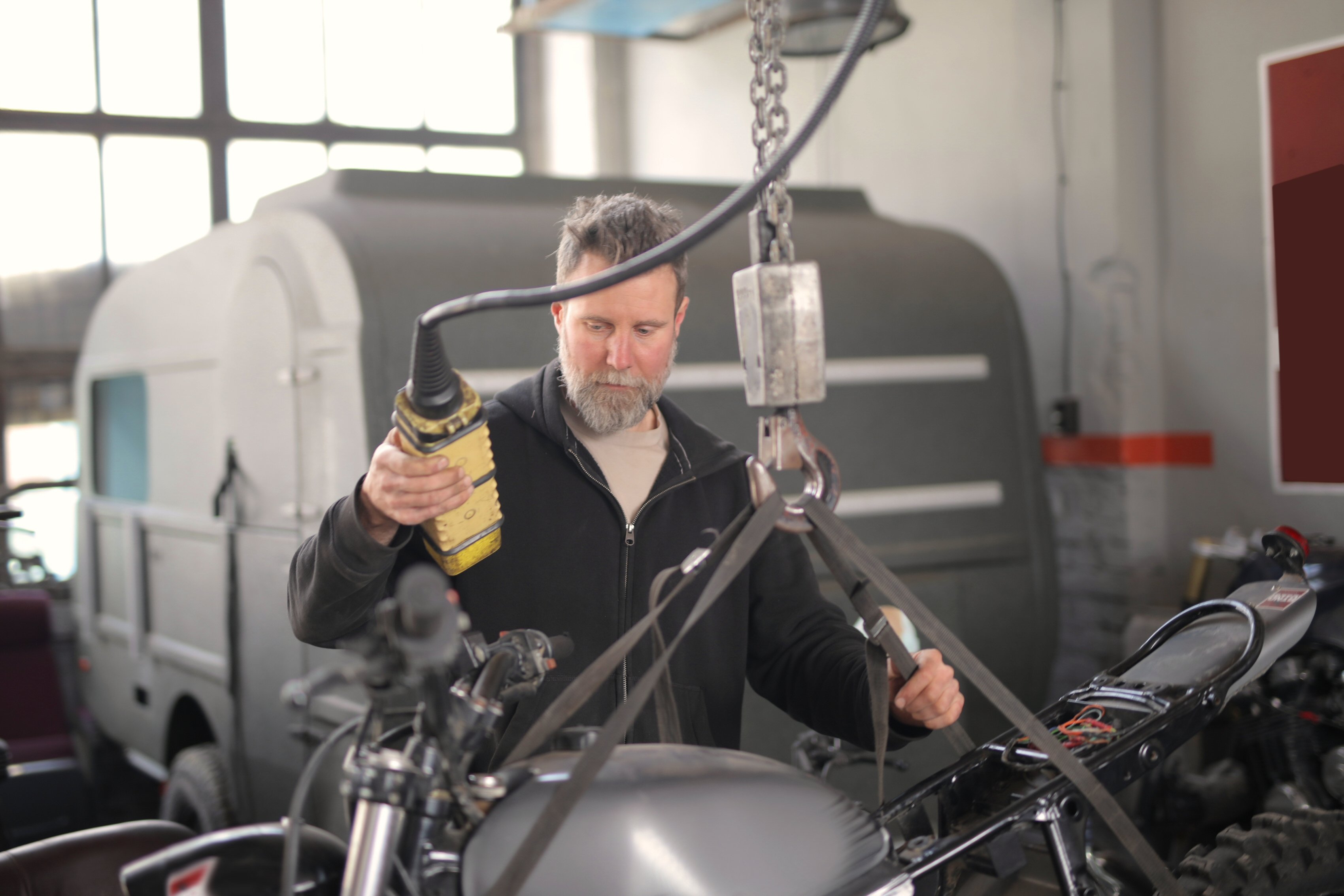If you’ve got little or no experience working with cars or heavy machinery but you are interested in a career as a mechanic, it may seem like an unreachable goal.
However, there are a variety of pathways into the industry. Many people come into the job after working as a heavy vehicle mechanic in the military, which is a popular choice for those seeking a career as a mechanic.
Whether you have prior experience or not, the military will begin with the assumption that you know nothing about vehicle repair, so you’ll learn from the ground up. This can be followed up by a technical school, or experience working at a manufacturer, but there are other routes into vehicle mechanic jobs if you have no military experience.
In this blog, we give tips on how to improve your chances of getting a job as a vehicle mechanic – no forces background necessary.
3 ways to improve your chances of getting a job as a vehicle mechanic:
1. Do some background reading
Whether you’re coming to the industry with knowledge of vehicle maintenance already or you are at the beginning of your journey to find vehicle mechanic jobs, you can give yourself an even bigger leg-up by doing some background reading.
Subscribe to some well-regarded car magazines and spend time reading them cover to cover – make notes on features you need to research further. Your local library is also a good resource; check out as many vehicle maintenance books as possible and again, spend time reading them and making notes.
The internet is also a hugely valuable tool that is available to everyone, with much of the information online being free to view. As well as formal mechanic sites, you can also join auto repair forums where you can ask for advice and add comments.
Go in with an open mind and accept any constructive criticism; tell people you’re there to learn and they will likely be very accommodating of a ‘newbie’ and eager to help.
If you prefer more ‘doing’ than reading, find out about local car shows in your area – car people are very friendly, enthusiastic and knowledgeable about their vehicles and you’ll usually see a variety of older classic cars. Alternatively, if there’s a specific make or model of car that interests you, find out if there is a local club dedicated to it, and join it.

2. Further your education
If you don’t have any formal qualifications or commercial experience, going back to school is a good choice. If you already have enthusiasm for the motor industry and repairing cars, some formal schooling will help to cement this.
Some knowledge of different makes and models of cars is also very useful. Many local colleges offer their own courses, or you can enrol on a City & Guilds Course – there are over 20 different automotive qualifications available such as NVQs. You’ll receive a certificate at the end of each qualification which may enable you to work towards a higher diploma.
This might be a Level 2 Diploma in Light Vehicle Maintenance and Repair, or a Level 3 Diploma in Vehicle Technology. To enrol on a course, you’ll usually need two or more GCSEs for a Level 2 course, or four or more GCSEs for a Level 3 course.
Take the time to read through reviews of any colleges you’re thinking of attending, or ask someone already working in the industry for their opinion.
If school doesn’t sound appealing, fear not – while there is some classwork, most training programmes provide hands-on experience combined with traditional instruction. Training programmes vary in length from a couple of months to over a year, depending on how many hours you can spend on the programme every week.
Once you’ve completed some courses, you could also be on track for an apprenticeship – becoming an apprentice gives you the opportunity to make money while learning. You’ll get to learn the basics from actual mechanics, in real-life situations.
Another good resource for finding details about working and training as a mechanic or finding an apprenticeship can be found at Autocity, the Institute of the Motor Industry.
3. Get hands on experience
The best way to get started is to get an entry-level job at a dealership or repair shop. Anything related to vehicle maintenance, whether light or heavy, is going to benefit you and even if you start out as a detailer, you’ll have the opportunity to ask lots of questions and to progress.
If this isn’t convenient because of your work situation, instead consider buying a cheap, older used car and starting work on it in your spare time. Get a lot of practice by changing the oil and brake pads for example; this is where your background reading comes in handy, but you’ll also find some excellent how-to videos on YouTube.
You’ll need to spend a little bit of money on tools and parts, but it's a fantastic experience – almost like a crash course in mechanics. Of course, make sure you get a professional garage or mechanic to check over any of your work before you drive the vehicle or head out on the roads - just in case!
Becoming a mechanic takes work...
Whether you want to work for a premier car manufacturer or have always dreamed of working on the very latest vehicle technology, becoming a mechanic takes diligence – but it’s not an unattainable goal.
Vehicle mechanic jobs can take you down a well-respected and diverse career path. Your services will be in demand all over the world and you could even find yourself taking a job overseas as a contract mechanic. Whatever your goal, we hope these tips can help. If you need more information, contact our specialist mechanic recruiters today.




